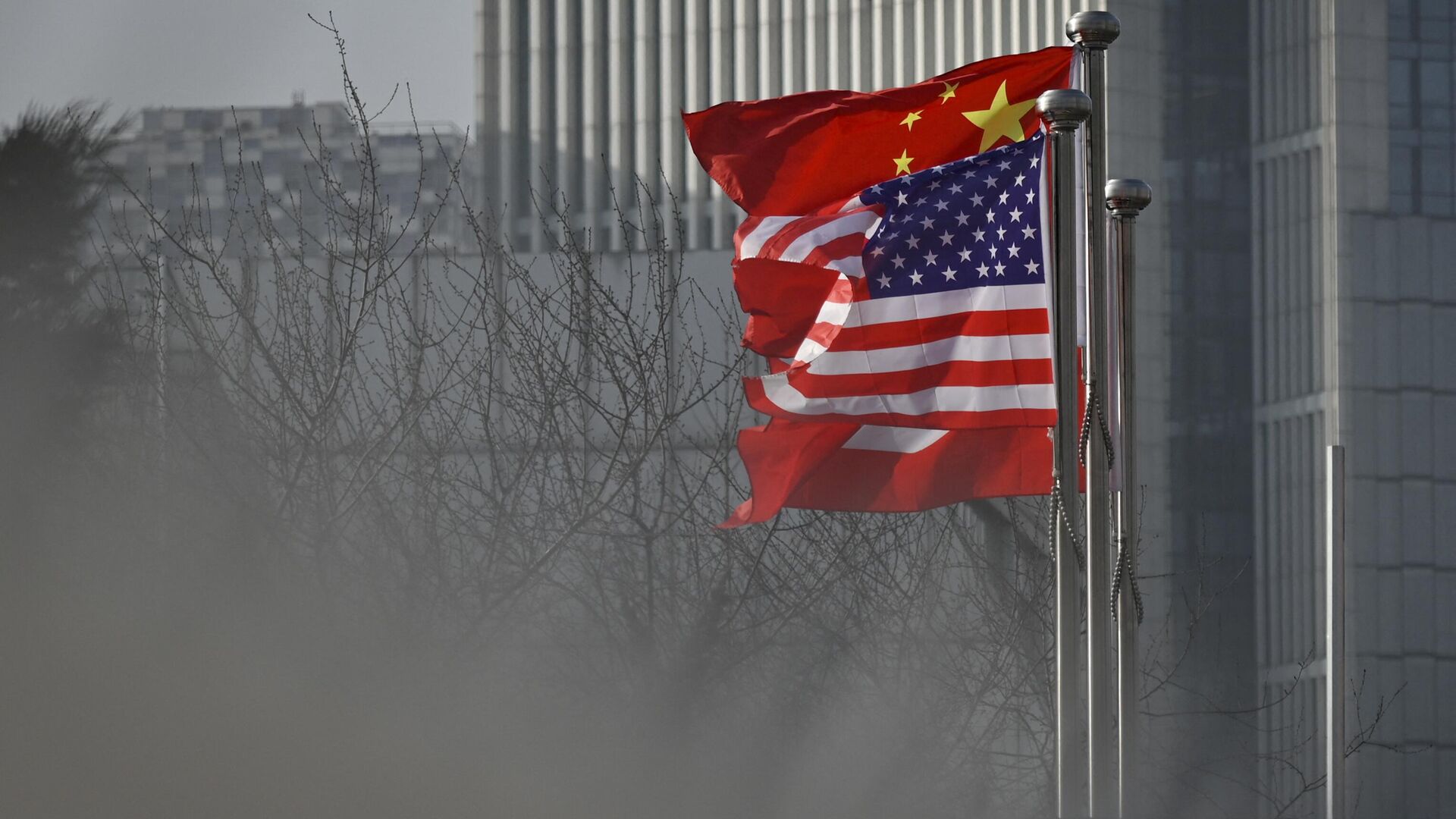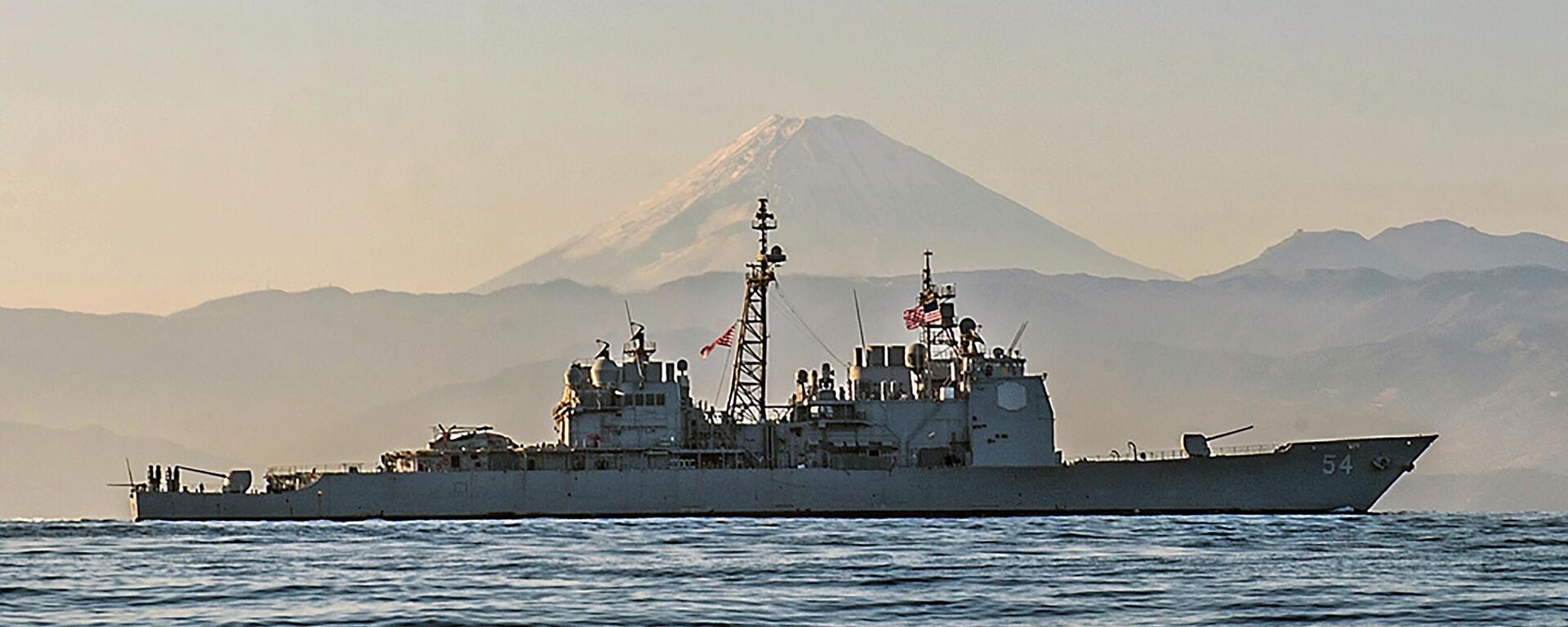China's Warning ‘Don't Assist US’: Should the World Heed It?
11:54 GMT 04.04.2023 (Updated: 12:16 GMT 04.04.2023)

© AFP 2023 / WANG ZHAO
Subscribe
Chinese Foreign Minister Qin Gang has urged Japan not to aid the US in its efforts to curb the development of China's chip industry. Beijing's top diplomat reminded Tokyo that in the past, the Americans had unscrupulously held back the development of Japan’s semiconductor industry, and now they were pulling the same old tactic with China.
Sputnik, together with experts, analyzed whether the White House's tactics of economically strangling a strong competitor could really be identical: both with regard to China and Japan. As a result, the ensuing conclusions confirmed that the same scenario can indeed be repeated twice.
The first time this happened was a tragedy for the Japanese economy, when its semiconductor industry was virtually destroyed by US sanctions in the 1980s. The reason was the famous Toshiba-Kongsberg trade scandal, which involved the supply of numerically controlled machine tools to the USSR, without Washington's permission.
Although the Soviet import list included other foreign companies from Norway, West Germany, and Italy, it was Toshiba that the US "targeted" in order to stifle the Japanese semiconductor industry. At the time, Toshiba was emerging as the country's most advanced semiconductor company. And on the island of Kyushu, Japan's Silicon Valley was already practically in place.
However, only Americans believe they are entitled to the fruits of such a technological boom, so someone else's economic rise and technological breakthrough must benefit the US, as Washington sees it. As far as that goes, the alliance with Tokyo never restrained the United States on this score. As a result, trade wars and industrial-technological scandals broke out between the two from time to time.
Consequently, in 1987, the US imposed a 100% tax on Japanese chipmakers, effectively shutting them out of the US market. This reduced the cost advantage of Japanese components to zero.
Now the time has come for US sanctions against China, and instead of Toshiba, Huawei now has a target painted on its back.
Therefore, China's top diplomat - after Foreign Minister Yoshimasa Hayashi's visit to Beijing - saw fit to remind his Japanese counterpart: "Do not do to others what you don't want done to you.
“Beijing has been careful to avoid a sharp deterioration in relations with Tokyo. Above all, the Japanese must not damage bilateral cooperation for their own economic interests. And for that to happen, Japan needs to exercise restraint and not get ahead of the US in its sanctions frenzy on technology restrictions against China. Meanwhile, the exact opposite is happening. Japan is increasingly moving toward coordination with the US on technology. As a result, Beijing is hardening its stance on relations with Tokyo. Meanwhile, its relations with Russia are escalating, including joint military exercises. But China has at least tried to influence Tokyo. This may have slowed Japan's move toward tough high-tech restrictions against China. In any case, almost simultaneously with the behind-the-scenes talks in Beijing (between the two heads of diplomatic departments), a Kyodo headline revealed a surprising fact: Xi Jinping did not support Japan's claim to the Kuril Islands during his recent meeting with President Putin in Moscow,” said political expert Vasily Kashin, director and senior research fellow at the Center for Comprehensive European and International Studies (CCEIS) at the National Research University Higher School of Economics.
“Chinese President Xi Jinping did not support Japan's claim over the Russian-held islands off Hokkaido in his talks with Russian counterpart Vladimir Putin last month, according to a Chinese source familiar with the matter, ditching a long-held stance of recognizing them as Tokyo's.”
Thus, Beijing's position has shifted toward neutrality, and thus closer - in favor of Russia - for the first time in 59 years.
This comes at a time when China's relations with Japan are deteriorating, which could be seen as a threatening sign for Tokyo, the expert concluded.
According to Vasily Kashin, this paradoxical situation stems from Japan's complex dual motivation in its relations with Beijing:
"On the one hand, Tokyo does not like the rise of Chinese influence in Asia. On the other hand, Japan has reached such a level of economic interdependence with China that it cannot risk relations with that country. However, despite China's extraordinary economic importance to Japan, Tokyo is indeed very concerned about China's technological growth. The Japanese are trying to thwart it, but not enough to seriously damage the Japanese economy. Therefore, the ideal situation for Tokyo is for the Americans to take the brunt of containing China. And Japan continues to cooperate successfully in most areas. But the best-case scenario would be for other countries to work together to limit China's ability to pull ahead in the high-tech sector. Right now, however, the United States is demanding that Japan participate more in this process. Namely, to decisively ‘cut off’ all ties with Beijing in the technology sector, not in narrow sectors. At the same time, focus on working with the US and its allies on semiconductors.”
To this end, a new Japanese government-backed holding company, Rapidus Corp., was established last year and is already working with US tech giant IBM to develop next-generation semiconductors.
But Beijing mentioned to Tokyo that Japanese chipmakers had already dominated the global chip market in the late 1980s, accounting for more than half of global chip production. But US export restrictions on trade with Tokyo led to a reduction in chip production in Japan, with the manufacturing base being outsourced to East Asian countries.
Eventually, Taiwan and South Korea, benefited the most from that, having become semiconductor leaders over the years.
This raises a legitimate question: Will history repeat itself twice with Japan? The second time will be a farce if Tokyo again trusts the US unconditionally and without any guarantees.
Japan will pour billions into semiconductor manufacturing with the best minds. Then, because it no longer seems profitable to Washington, the US will again change its strategy.
After all, this has happened many times before, the most striking example being in the 1980s, which showed that the US prefers to see its own greatness rather than Japan's, Vasily Kashin recalled:
“After the economic miracle, there was a sense that Japan was indeed becoming one of the pillars of the world order. The country was actively developing industrially, technologically, and militarily. But the end was rather trivial in the form of the Plaza Accord in 1985. It was signed by the US, France, Germany, Great Britain and Japan. As you know, the Plaza Accord devalued the US dollar against the Japanese yen. The goal was to make American and European exports more competitive with Japanese exports. So it was the Japanese economy that suffered.”
The Plaza Accord had a profound impact on Japan, leading to an asset price bubble there in the late 1980s. It was the catalyst that eventually led to the lost decade that began in the early 1990s, the effects of which are still strongly felt in Japan today.
As the period of stagnation stretched into the late 2000s, the Japanese economy failed to grow, even though it had previously reached impressive levels. With that said, Toshiba never recovered from the blow it took in the 1980s.
Meanwhile, the main instigator of the Japanese "trade war" and the subsequent Chinese one is the same person - Robert Lighthizer. And it seems that such experts are always in demand in the White House.





